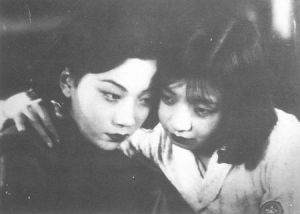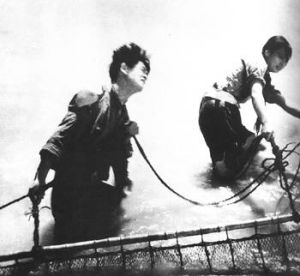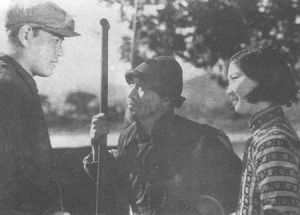Chinese Left-wing Cinema Movement
The Chinese Left-wing Cinema Movement was an advanced cinematic movement led by the Chinese Communists in the 1930s. After the September 18 incident, a number of filmmaking companies turned "left-wing" in attempt to improve the turnover and attract more audiences, as well as for the reason that most workers in the industry were infuriated against the invading Japanese. Taking the lead, Mingxing Studio took the suggestion from Hong Shen to invite left-wing authors Xia Yan, Zheng Boqi and Qian Xingcun (also known as A Ying) to be the editing consultants and started an editorial committee with them as members alongside Zheng Zhengqiu and Hong Shen. Later, Shen Xiling, Situ Huimi, Hu Ping, Wang Ying and Chen Ningqiu from the Chinese League of Dramatists also joined Mingxing Studio's committee. Lianhua Studio and Yihua Studio soon followed in their footsteps, taking some left-wing artists such as Tian Han, Yang Hansheng, Nie Er, Zheng Junli and Jinyan to join their own teams. These communist filmmakers became the creative cores, and from that point forward, the Chinese film industry entered a new phase.
The upsurge of the Chinese Left-wing Cinema Movement appeared in 1933 as films such as Wild Torrent, Iron Board of Blood Tear, Woman Crying, Twenty-four Hours in Shanghai, Three Modern Ladies, Survival of a Nation, The Road, and New Female were screened. From 1934 to 1935, the KMT government intensified the persecution of the left-wing cinematic movement. But filmmakers set up Diantong Film Company, which presented important examples of the left-leaning Chinese cinema, including Shared Hate, Song of the Fisherman, Spirit of Freedom and The Boatman's Daughter. In addition, Song of the Fisherman was notable as being the first Chinese film to win a prize in an international film festival in Moscow.


